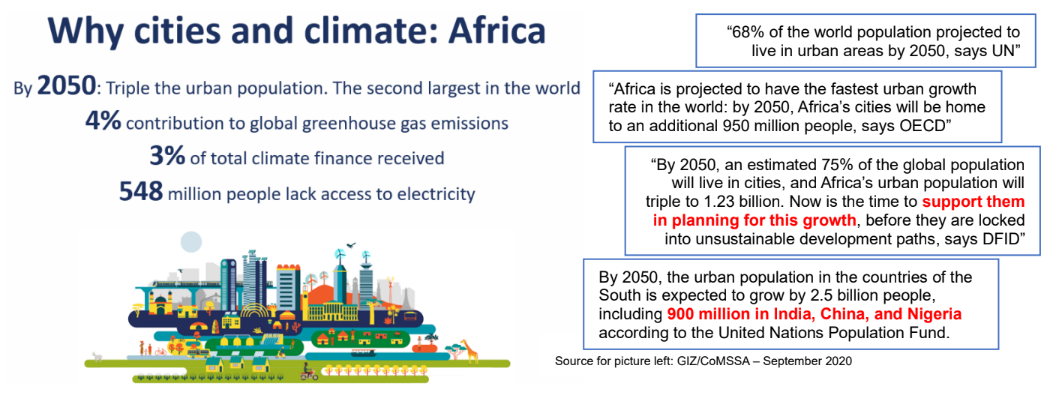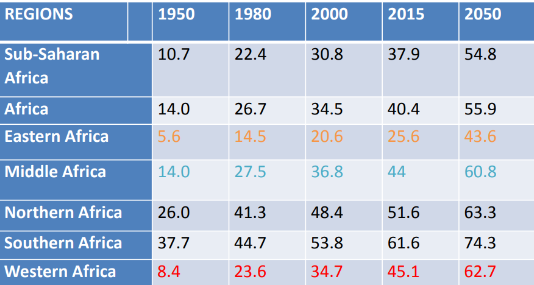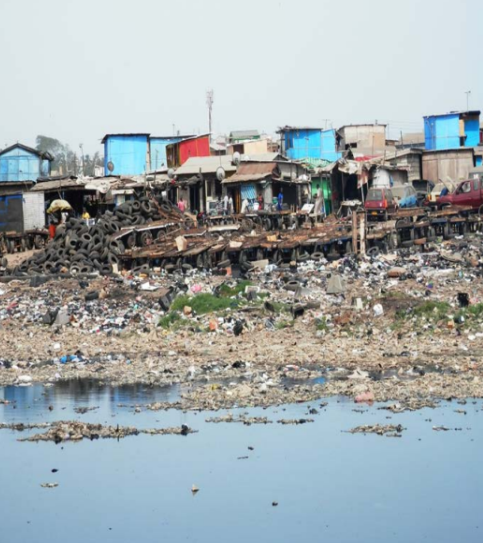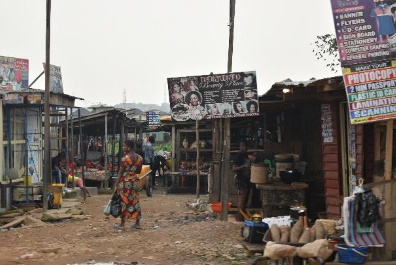· 8 min read
Introduction
All significant actors (EU, GIZ, C40, Global Covenant of Mayors – GCoM, Covenant of Mayors of Sub-Saharan Africa - CoMSSA, ICLEI et al) seem to be falling into the mind trap of this irrational oxymoron of the acknowledged assumption that Megacities globally will continue to increase population but especially in Africa they estimate a tripling of populations!

Can anyone imagine the unimaginable and seeing Lagos with today’s day population being 25 Mio, which is unliveable already, to rise to 75 Million day population? And what is the international organisation's response: “Let us help them manage such population increase!”
Why are they and Africans accepting such defeat as given?
Because it is obviously a defeat to accept the fluctuation of populations in rural areas, which is more and more caused by degradation of soils caused by climate change in combination with the for-decades imposed approach of totalitarian industrial agriculture (tilling, use of GMO and non-local seeds) based on chemicals (fertilizers, hormones, pesticides, herbicides, insecticides) which is a major soil and biodiversity killer and contrary to the smallholder farmers traditional way of farming.
Hunger, malnutrition, poverty is then resulting in migration, mostly of the male members of rural families, leaving the female family members to hustle each day for their survival, burdened with all daily chores and leaving the young girls no time for their own personal development and education. They collect firewood, contributing even further to deforestation adding to the vicious cycle of degradation of soils, extinction of living soils, lowering of water tables, floods and droughts, loss of biodiversity. Further to that, those populations are prone to criminality and terrorism building ideal recruitment grounds for those circles.
The rational thing to do is to verify and address the root causes of the population explosion in African Megacities and enable those rural climate migrants to have a livelihood and well-being in their original homelands.
It is necessary to support projects in the origin regions of the climate migrants’ local communities. It just makes no sense to practice an “end-of-pipe” approach and pump, disproportionally, money into the cities alone.
In contrary, you need to incorporate the principles of degrowth into your urban strategies and even aim to limit populations in Megacities to make them liveable again whilst applying sustainability, climate adaptation, resilience, and mitigation measures.
Root causes of rural migration into megacities
The rural-urban migration is a reality for West Africa [..and Africa as a whole]. Rural populations are constantly faced with rising food prices and worsening agricultural production conditions. This contributes to (further) rural-urban migration, and multilocational households that split livelihoods between urban and rural areas (Yaro 2008).
We witness in the last decade, especially from the Muslim northern regions of Nigeria, a male rural – urban and cross border Migration, which includes uneducated and unqualified male youth.
In recent years, violent conflicts in Mali, Burkina Faso, Niger, and Nigeria have prompted the movement of about 5 million forcibly displaced persons (UNHCR 2020, 72–74), a trend that has intensified internal migration to urban areas. Furthermore, effects of climate and environmental change (e.g., harvest failures, infrastructural damage, and drought) have become important drivers of human mobility in West Africa as they increase both existing patterns of labor mobility and forced (mainly internal) displacement. It is very likely that the effects of climate change will not only increase migration and forced displacement but also the share of “trapped populations” in the next decades to come. These are the most vulnerable population groups, who often lack the necessary resources to migrate at all (Schraven et al. 2020,14–20). The COVID-19-related mobility restrictions and social distancing measures enacted in most countries in West Africa have severely destabilized the economic basis of vulnerable migrant groups.

Consequences of rural-urban migration for cities
Due to a lack of data enumeration and socio-economic reception policies, procedures and infrastructures, the cities do not know the number and origin of the populations migrating into their borders. The migrants build or join informal settlements and attempt to work in the informal economy.
The informal settlements are usually underdeveloped, or non-developed parts of the urban environment and they produce environmental and health challenges. They are characterised by overcrowded houses, limited electricity supply, poor access to water supplies, little to no sanitation and insecure living conditions. Firewood or all kinds of waste are used for open fire cooking, generators for electricity to support mainly small sustenance businesses. Waste and wastewater are openly disposed, and wastes are burned every evening openly. The daily hustle for sustenance is harsh and can lead especially youth to criminal behaviour and drug abuse. The migrants only interest, further to their own survival, is to generate remittances to their families back in their communities. They live more miserable than in their poor communities before and are on top socially, emotionally and religiously isolated. This definitely affects their mental and physical health and can be seen as a consequence of forced migration. They would prefer to having been able to live with dignity in their original communities.
There is no tax-income for the city, and it receives the pollution, Greenhouse Gas emissions and degradation of areas. These informal settlements are also prone to recruitment by terror groups and criminal organisations, which can build their cells in such informal urban settlements as recently increasingly witnessed even in the Nigerian Federal Capital, Abuja.
Conclusions and recommendations
There is urgent need to create impactful and effective programs and policies to regenerate rural communities’ livelihood and wellbeing by supporting and enabling them to restore their soils and practice regenerative syntropic agroforestry for food production as well as high value crops for B2B sales to industrial buyers of national and international origin directly without profiteering and manipulating middlemen. Those programs also need to integrate awareness raising and skillset transfer for farmers and herdsmen in order to revive the traditional synergistic and symbiotic functions of pastoral and agricultural land uses. Such process would help restore peace between pastoralists and farmers and improve the wellbeing of both groups.
See also www.asjeba.com the website of the Swiss “Planting Your Future” Foundation, a “UN Global Compact” member. It is rational to contribute to Ecosystem restoration by refraining from simply checking the box and plant nonindigenous tree species with the only objective to prove to donors that the collected donations are put to a purpose. Too many “NGO’s” are unfortunately practicing this. After covering their overheads of 50-75% they “invest” the remaining donations, totally disconnected from local communities, into absolutely not impactful reforestation activities with no benefits for the local communities (e.g. 2,5 Mio Euro in Bauchi for Birches plantation). Naturally the local communities use these saplings as soon as possible for firewood and grazing purposes and the action is soon becoming meaningless. ASJEBA intends to promote the creation of Productive and Food forests on a large scale. In Nigeria we strive to have one project of 75 thousand hectare in each Northern State. Each project will create in full scale 15 thousand jobs, vocational training centres, eco-villages (1 per two thousand hectares) including housing, schooling, healthcare, renewable power plants, local crop processing facilities to keep added value in the communities. This means that directly at least 200.000 citizens per project will benefit and secure wellbeing and livelihood.
Cities would benefit multiply because the rural-urban migration would be mitigated, regulated, documented, even reversed and the productive rural areas would be a source of fairly priced food for the citizens of the cities. As offset for such good services from the rural areas, there should be programs which encourage and enable rural youth to seek educational and professional opportunities in the cities in organised frame conditions. Rural communities having acquired the necessary skills might support cities in Urban greening and urban agriculture projects as a back up to logistic supply chain challenges. Imagine Urban Food forests for the poor providing high nutritional quality food e.g. in exchange for bringing in recyclables such as plastic, tyres, cardboard and being allowed to collect food from the food forest for free.
International organisations need to understand that programs and policies cannot be created by them on their desks in the Global North, without having the necessary local knowledge of social, economic and environmental frame conditions in the Global South. They need to customise their support to local needs and conditions and not help managing the anticipated coming worst case. All aspects of Sustainable Development are to be approached holistically and thinking in the box needs to be avoided. The different organisations and programs need to cooperate and stop being antagonistic with each other. This persistent attitude is not helping the target regions at all.
We as a society need to let go of the insane GROWTH mentality. It is not attractive to envision mega cities of the future with 75 to 100 and more million suffering inhabitants.
Africans must reject this projected non fact as unsustainable and turn the rudder as soon as possible to avoid such disastrous and carcinogenic like “GROWTH” of its cities in general. We need a rural population living healthy and with dignity and providing high quality food with high nutritional value at fair prices.
We need a drastic change in our paradigms of how we live, work, produce, consume and circularly return used resources to other uses. In Nature, there is no Waste!! No losses!! We, imperfect “so-called Homo Sapiens”, are not honouring the self-attributed "Wisdom"[???] of our kind by having created a linear economy and society of infinite growth (and waste/losses) in a finite natural system called Planet Earth!
Illuminem Voices is a democratic space presenting the thoughts and opinions of leading Energy & Sustainability writers, their opinions do not necessarily represent those of illuminem.
Appendix









